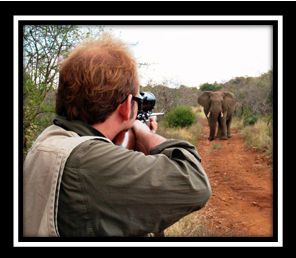News
Latest Lion Aid News
The USFWS makes a good decision about elephants – but lions are still kept waiting
Saturday 5th April 2014
|
Additional killing does not conserve the species
On April 4th, the US Fish and Wildlife Service placed a temporary ban on all imports of elephant ivory hunting trophies from Tanzania and Zimbabwe. The Management Authority reasoned that “Additional killing of elephants in these countries, even if legal, is not sustainable and is not currently supporting conservation efforts that contribute towards the recovery of the species.” Let’s look at that announcement in depth. a) Over the ten years 2003-2012 US hunters imported an average of 52 elephant trophies per year from Tanzania (based on adding together the “tusk”/2 and “trophy” categories in the CITES database). From Zimbabwe, US hunters imported an average of about 160 elephants per year (there is some uncertainty about this number as Zimbabwe lists exports as “tusks”, “trophies” and to complicate matters also exports trophy tusks by the kilo). b) In both countries, US hunters outnumber hunters from any other nation, and the ban is likely to significantly affect the income of the trophy hunting operators. c) The reason given for the temporary import ban is that “Additional killing of elephants in these countries, even if legal, is not sustainable and is not currently supporting conservation efforts that contribute towards the recovery of the species.” Now there’s an interesting admission. Does that imply that the USFWS is not a great believer in the “killing for conservation” message that the hunters are putting out there? Because if they did, they would allow the trophy hunters to continue because, after all, isn’t their presence in hunting areas supposed to deter poachers? And benefit communities? Just think of all that elephant meat the communities will now be deprived of? d) But then the USFWS statement turns full circle, it seems, and says that they will still allow imports of ivory hunting trophies from Namibia and South Africa because sport hunting “can benefit the conservation of listed species by providing incentives to local communities to conserve the species and by putting much-needed revenue back into conservation.” e) Does that imply, by extension of that same argument, that the USFWS will place an import ban on ALL trophy hunted species where “additional killing” is not contributing towards the recovery of the species? Does that mean that lions, now in great decline across Africa because of a diversity of factors like habitat loss, human/wildlife conflict, illegal wildlife trade etc will also not benefit from “additional killing” by trophy hunters? f) Given this statement by the USFWS, will the EU ignore it or join forces?
The text of the decision is as follows: “The U.S. Fish and Wildlife Service today announced a suspension on imports of sport-hunted African elephant trophies taken in Tanzania and Zimbabwe during calendar year 2014. Questionable management practices, a lack of effective law enforcement and weak governance have resulted in uncontrolled poaching and catastrophic population declines of African elephants in Tanzania. In Zimbabwe, available data, though limited, indicate a significant decline in the elephant population. Anecdotal evidence, such as the widely publicized poisoning last year of 300 elephants in Hwange National Park, suggests that Zimbabwe’s elephants are also under siege. Given the current situation on the ground in both Tanzania and Zimbabwe, the Service is unable to make positive findings required under the Convention on International Trade in Endangered Species of Wild Fauna and Flora (CITES) and the Endangered Species Act to allow import of elephant trophies from these countries. Additional killing of elephants in these countries, even if legal, is not sustainable and is not currently supporting conservation efforts that contribute towards the recovery of the species. The decision to suspend the import of sport-hunted trophies from Tanzania and Zimbabwe applies to elephants taken in 2014. The Service will re-evaluate this suspension for calendar year 2015 or upon receipt of new information that demonstrates an improved situation for elephants in these countries. Legal, well-regulated sport hunting, as part of a sound management program, can benefit the conservation of listed species by providing incentives to local communities to conserve the species and by putting much-needed revenue back into conservation. At this time, the Service does not have conservation concerns with African elephant sport hunting in Namibia, South Africa, or Botswana; though it should be noted that Botswana is not currently open to sport hunting.” Photo credit - http://www.hunting-safaris-africa.com/trophy-hunting-safaris.html If you have not already signed up to our mailing list, you can add your name here and keep up to date with our ongoing work and, most importantly, DONATE to support our work to conserve the remaining fragile lion populations. Thank you. Categories: Trophy Hunting, Domesticating Animals |
Posted by Chris Macsween at 20:31
No comments have been posted yet.
Add a new comment
Existing user
New user sign up




